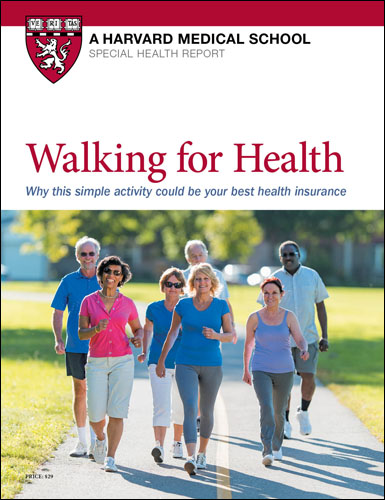Brisk walking linked to a lower risk of abnormal heart rhythms
Research we're watching
- Reviewed by Christopher P. Cannon, MD, Editor in Chief, Harvard Heart Letter; Editorial Advisory Board Member, Harvard Health Publishing

Walking with extra pep in your step may lower your risk of atrial fibrillation and other heart rhythm abnormalities, suggests a study published May 2, 2025, by the journal Heart.
The study was based on data from nearly 82,000 people in the United Kingdom who provided information about their estimated walking speed in miles per hour (mph). Researchers defined walking pace as slow (less than 3 mph), average (3 to 4 mph) or brisk (more than 4 mph). During an average follow-up of 13 years, nearly one in 10 developed heart rhythm abnormalities, including atrial fibrillation (a rapid, irregular heart rate) and bradycardia (a slow heart rate). Compared with a slow pace, average and brisk walking paces were associated, respectively, with 35% and 43% lower risk of abnormal heart rhythms.
More than a third of the beneficial effect of a faster pace was likely due to the fact that walking faster lowers cholesterol, blood sugar, and blood pressure and helps people maintain a healthy weight, according to the study authors.
Image: © FatCamera/Getty Images
About the Author

Julie Corliss, Executive Editor, Harvard Heart Letter
About the Reviewer

Christopher P. Cannon, MD, Editor in Chief, Harvard Heart Letter; Editorial Advisory Board Member, Harvard Health Publishing
Disclaimer:
As a service to our readers, Harvard Health Publishing provides access to our library of archived content. Please note the date of last review or update on all articles.
No content on this site, regardless of date, should ever be used as a substitute for direct medical advice from your doctor or other qualified clinician.
















